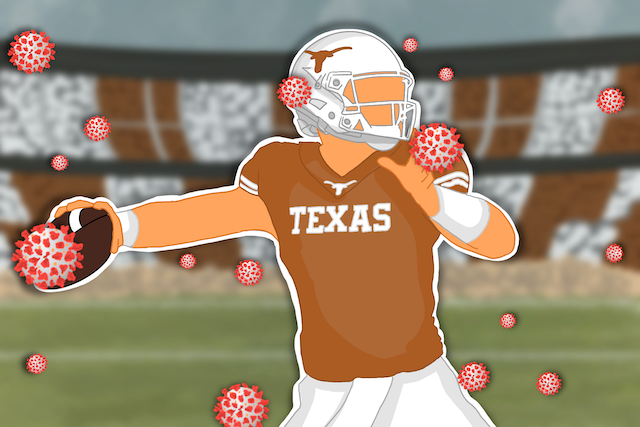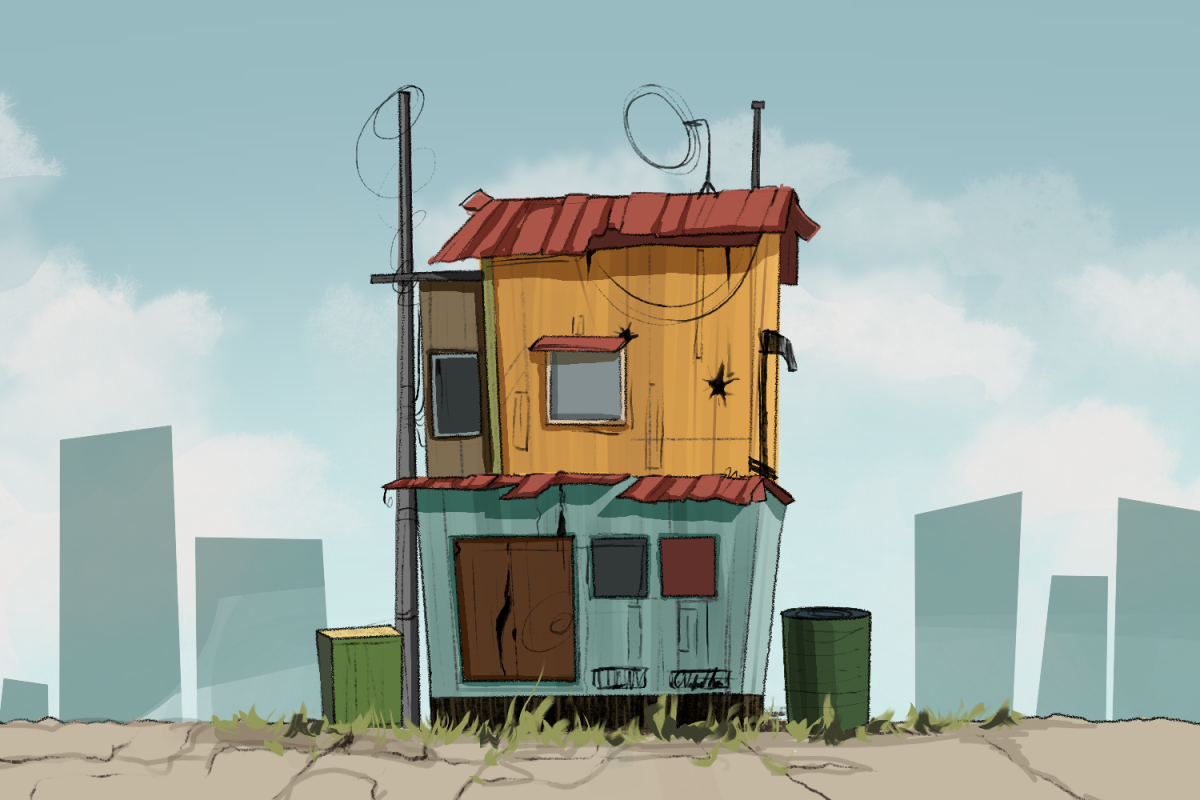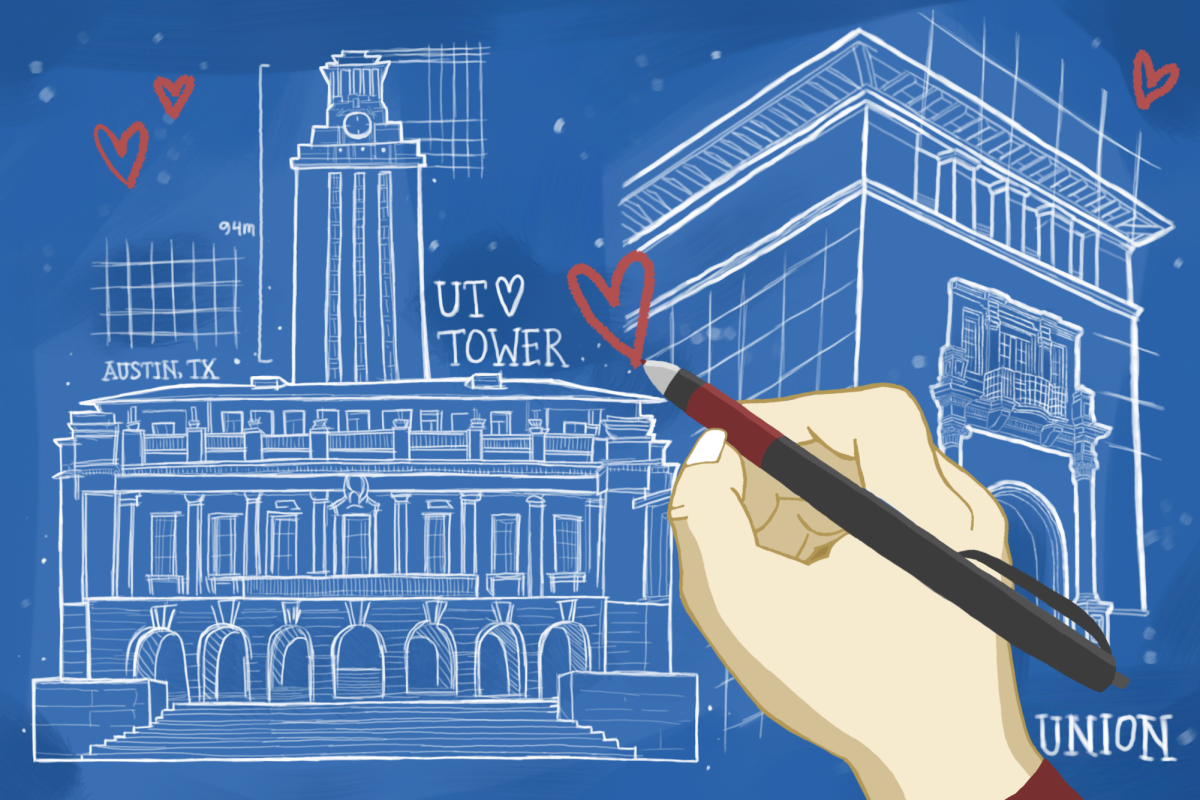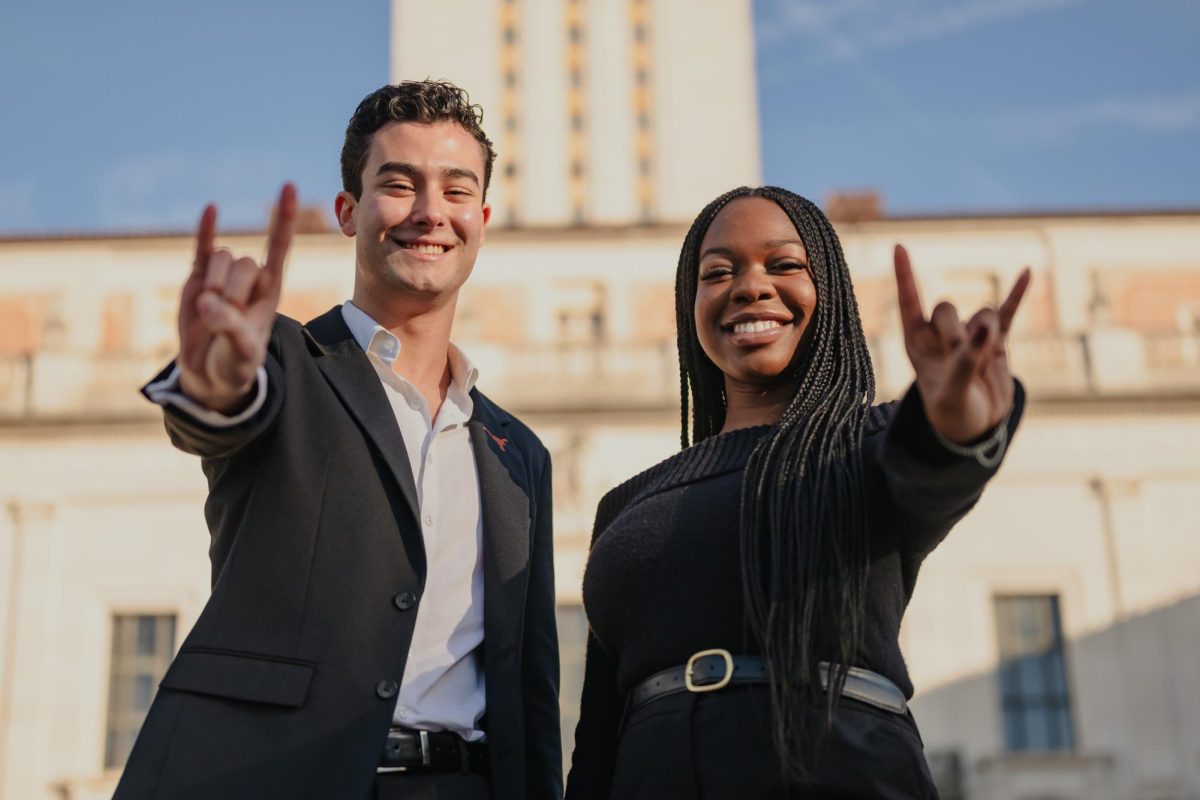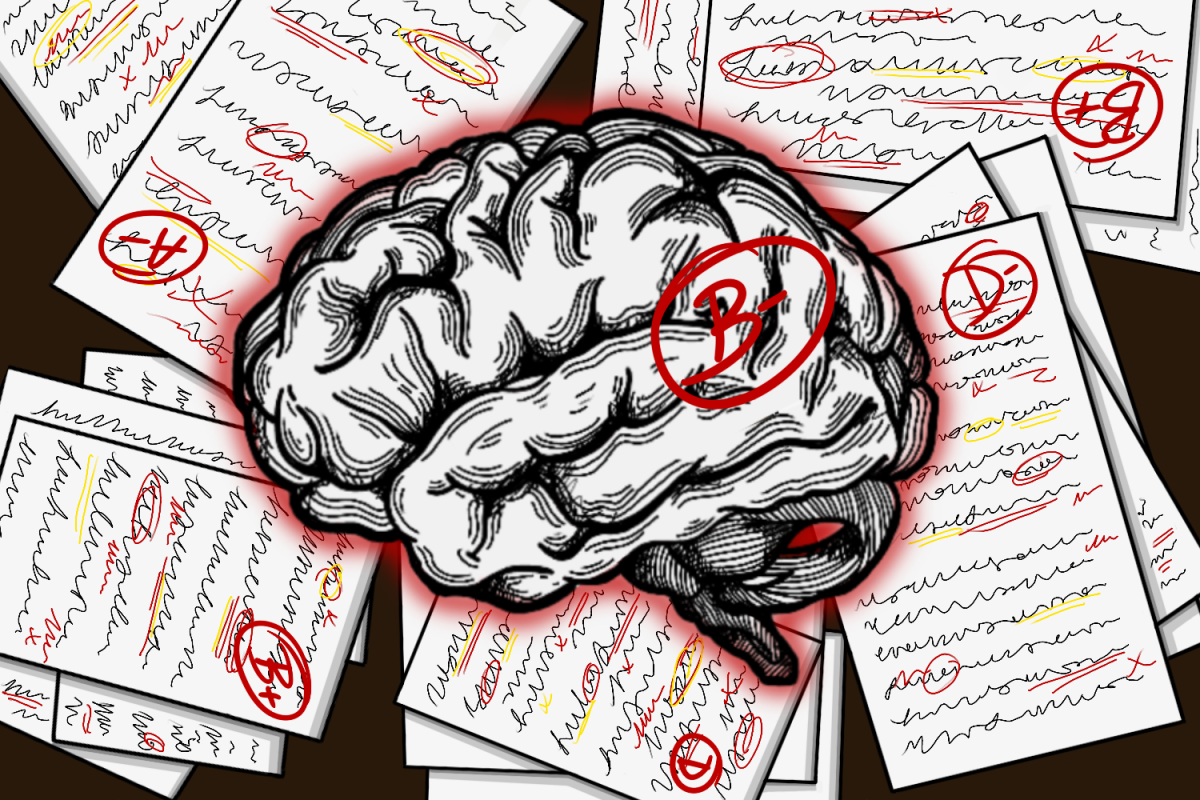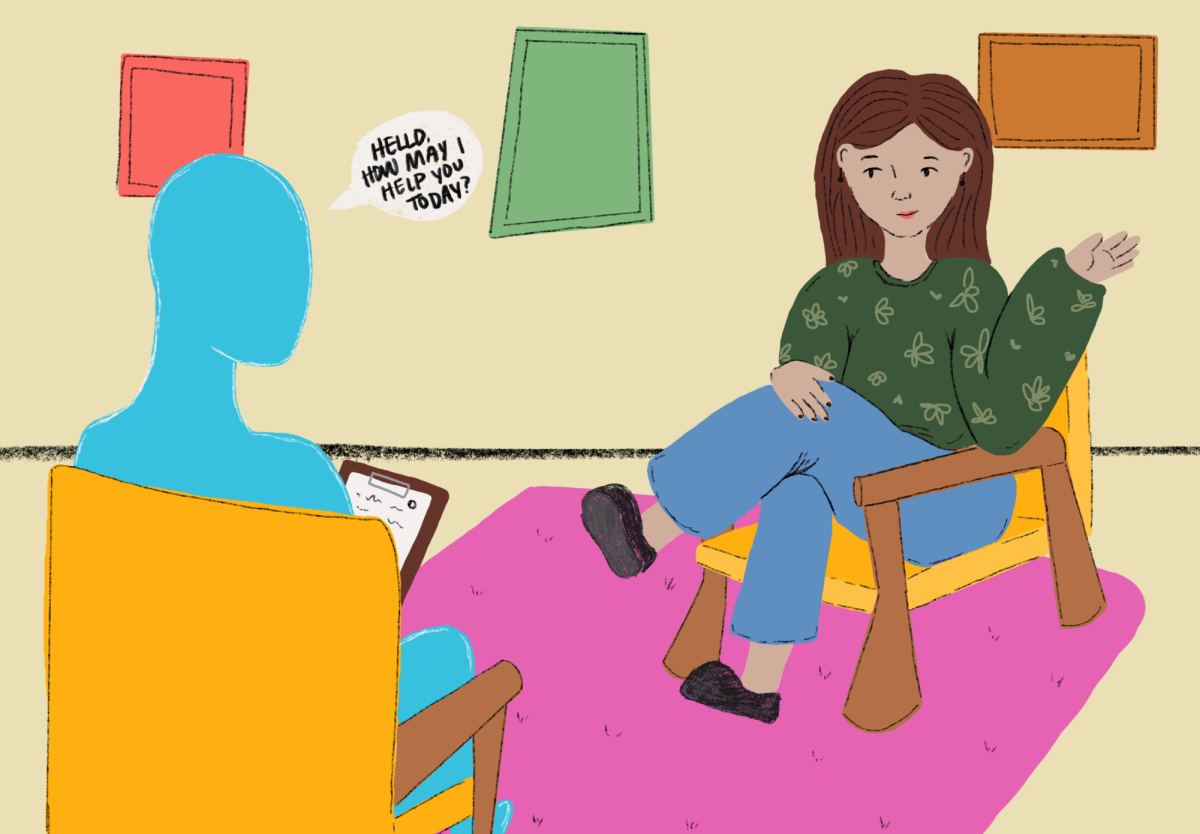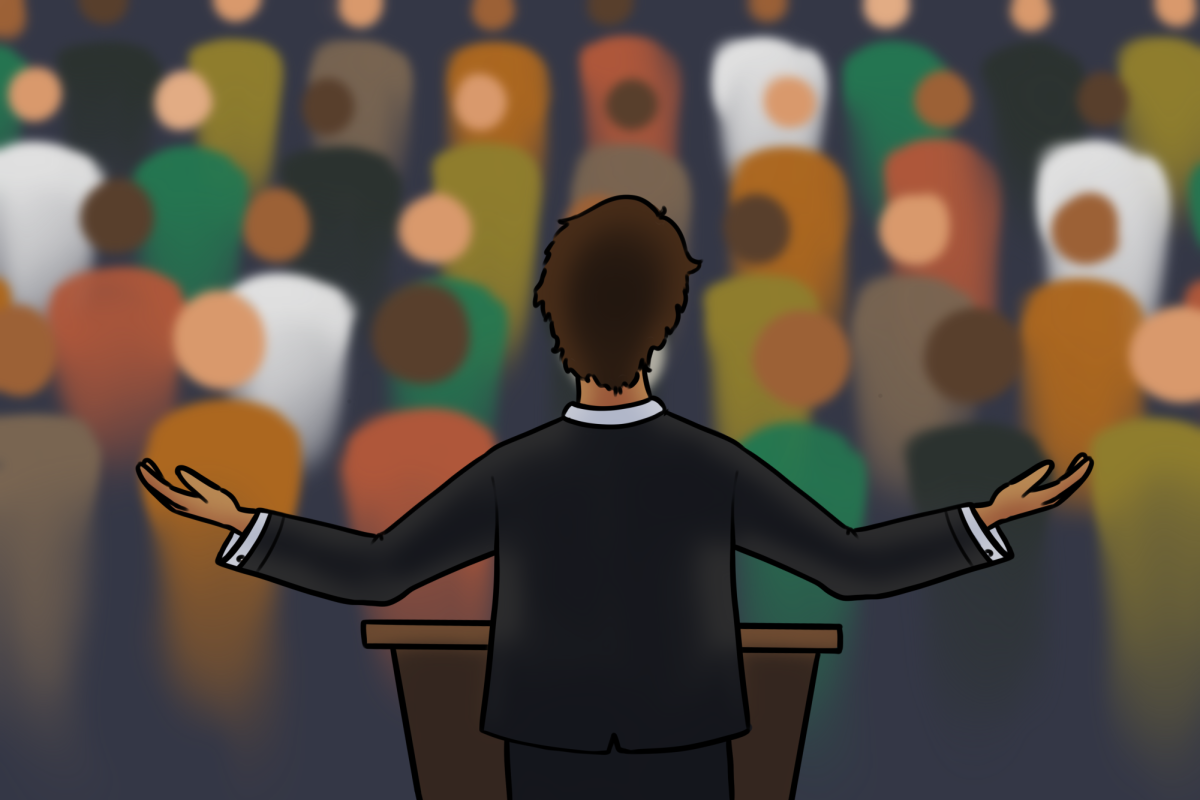This past Saturday, football season looked markedly different. Tailgating was banned and markers were placed on seats inside Darrell K Royal-Texas Memorial Stadium and outside its gates to promote social distancing. The Longhorn Band wasn’t beating their drums, nor did any additional on-field elements take place. Masks, per usual, were mandated. The voice over the loudspeakers encouraged hand sanitizing as the team warmed up.
It was a valiant effort, but these plans aren’t enough to stop the spread of COVID-19. In order to protect the health and safety of its students, UT must cancel all in-person sporting events.
While Big Ticket holders and athletes had to test negative in order to attend the game, UT didn’t require visitors from El Paso or other guests to get tested. This means that only 1,103 of the 15,337 attendees of the UTEP vs. UT game were confirmed to be COVID-19-free before entering the stadium.
“When we look at our current transmission rate in Travis County, we can expect that perhaps 40 to 50 people out of (the maximum) 25,000 will show up with COVID-19,” said Mark Escott, Austin Public Health’s interim medical director and health authority. “Our gathering limit is 10, and having 25,000 people in one space is of concern.”
These turned out to be conservative predictions when compared to the reality of the game. Of the 1,198 Big Ticket Holders, 95 tested positive the Friday before the game. They weren’t allowed in, but it’s a reflection of how many untested attendees could’ve brought COVID-19 into the arena.
Biology freshman Jerold Holman says he’s disappointed to miss valuable college experiences, but he doesn’t feel that the 25% capacity rule will keep attendees safe. Additionally, Holman believes that the reason UT is allowing in-person attendance is for monetary gain.
“They've shown time after time that they're still going to raise tuition and hold games during a pandemic,” Holman said. “Their primary goal has always been money. I want UT to care about the community. It takes a community to deal with a pandemic.”
Holman isn’t the only student who has sensed monetary motivations behind UT’s decisions.
“Almost every single class is online, and now they’re holding large sporting events on campus that they know (will) attract people from all over the state,” Allison Perez, an arts and entertainment technologies sophomore, said. “Any amount of money (UT) receives from this football game is not worth more people dying. UT needs to step up and take responsibility. There’s no more excuses.”
Despite the obvious risks a game poses, the stands at Darrell K Royal-Texas Memorial Stadium stadium filled with fans Saturday, with people high-fiving without masks while UT did nothing about it. Meanwhile, student cases continue to rise.
In a video from KXAN Austin, multiple students without masks walked to pregame parties and the football stadium, boots clacking on the sidewalk. Another video displayed Texas Rho, formerly known as the fraternity SAE, throwing a pregame party with dozens of unmasked, un-distanced guests. Off-campus gatherings have already been linked to a surge of cases in West Campus. Only time will tell how many students are going to get sick because of last Saturday’s events.
The world is aching for life to return to normal, but it’s time to accept that COVID-19 has established a new normal. UT must suspend in-person attendance at all sporting events until COVID-19 is no longer a concern.
UT does not exist in a vacuum. Let’s not forget: “What starts here changes the world.” As our football stadium fills with thousands, so do the hospital beds across the state.
Texas Football was unable to comment before the publication of this article.
Roland is a radio-television-film major from Houston, Texas.

